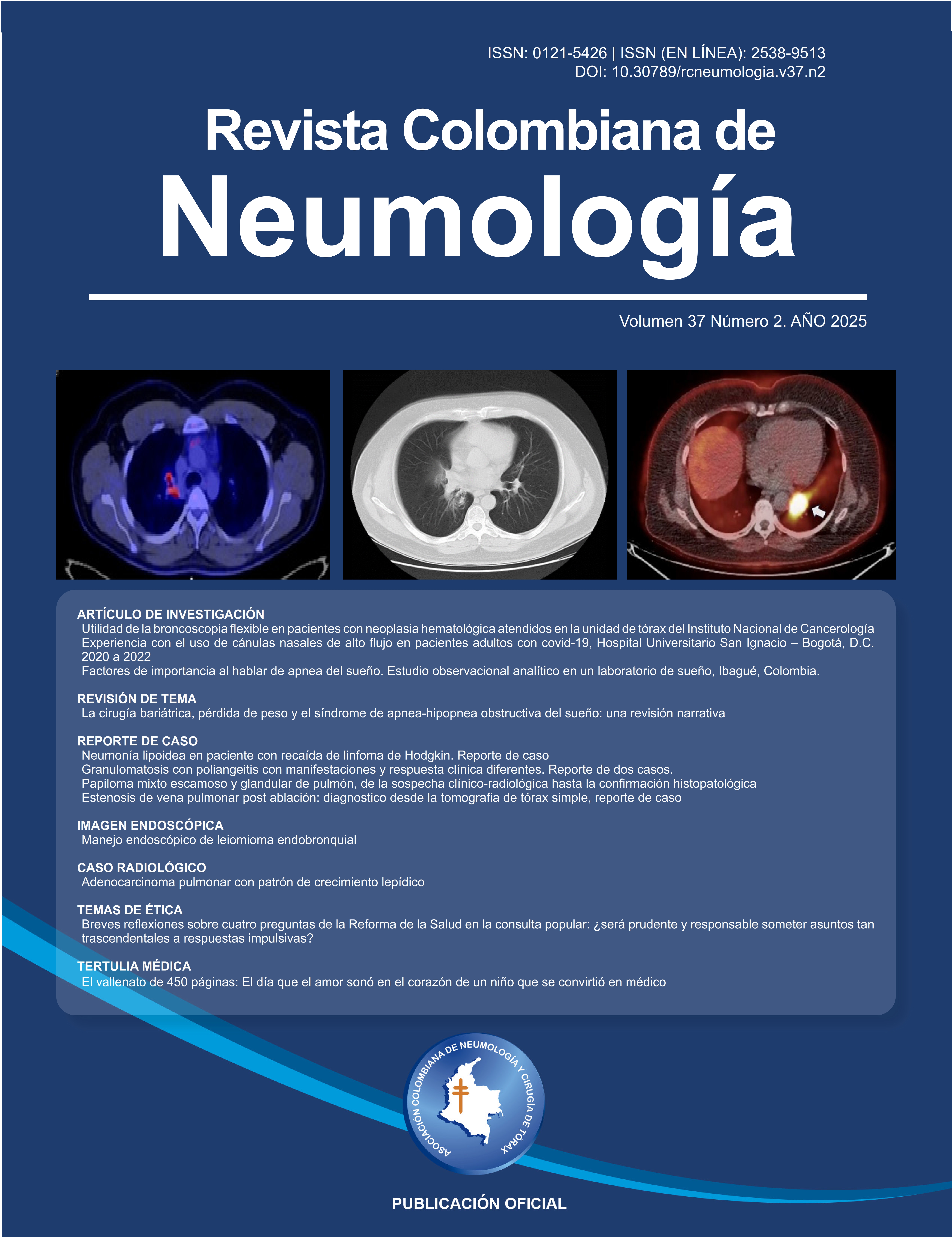High-flow nasal cannula: an alternative in the management of respiratory failure
Cánula nasal de alto flujo: una alternativa en el manejo de la insuficiencia respiratoria

This work is licensed under a Creative Commons Attribution-NonCommercial-ShareAlike 4.0 International License.
Ninguna publicación, nacional o extranjera, podrá reproducir ni traducir sus artículos ni sus resúmenes sin previa autorización escrita del editor; sin embargo los usuarios pueden descargar la información contenida en ella, pero deben darle atribución o reconocimiento de propiedad intelectual, deben usarlo tal como está, sin derivación alguna.
Show authors biography
High-flow oxygen therapy (HFO) has emerged as a promising therapeutic option, positioning itself between conventional low-flow oxygen therapy and noninvasive ventilatory support. This system delivers humidified and heated oxygen at high flows (up to 60 L/min), generating positive airway pressure, reducing anatomical dead space and improving gas exchange efficiency. Unlike other modalities, its design without a face mask increases comfort and tolerance in patients, facilitating their treatment adherence (1).
The challenge posed by the SARS-CoV-2 pandemic led to a global health crisis, underscoring the need to optimize technological resources for managing acute respiratory failure. Initially, the stepwise approach from standard oxygen therapy to invasive mechanical ventilation showed a negative impact on morbidity and mortality, especially in patients with severe hypoxemia. This prompted the adoption of noninvasive alternatives, such as HFO and noninvasive ventilation (NIV), to avoid early intubation (1,2).
Article visits 147 | PDF visits 79
Downloads
- Bräunlich J, Beyer D, Mai D, Hammerschmidt S, Seyfarth HJ, Wirtz H. Effects of Nasal High Flow on Ventilation in Volunteers, COPD and Idiopathic Pulmonary Fibrosis Patients. Respiration. 2013;85(4):319–25. doi: https://doi.org/10.1159/000342027 DOI: https://doi.org/10.1159/000342027
- Frat JP, Thille AW, Mercat A, Girault C, Ragot S, Perbet S, et al. High-Flow Oxygen through Nasal Cannula in Acute Hypoxemic Respiratory Failure. N Engl J Med. el 4 de 2015;372(23):2185–96. doi: https://doi.org/10.1056/nejmoa1503326 DOI: https://doi.org/10.1056/NEJMoa1503326
- Hernández G, Roca O, Colinas L. High-flow nasal cannula support therapy: new insights and improving performance. Crit Care. 2017;21(1). doi: https://doi.org/10.1186/s13054-017-1640-2 DOI: https://doi.org/10.1186/s13054-017-1640-2







